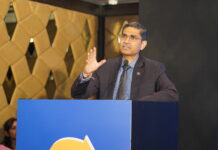Over the turn of the decade, Indians have emerged as leaders on the global front. Several distinguished firms and conglomerates have people of Indian origin in senior leadership positions. This is primarily thanks to the culture’s emphasis on education and training. Every household, irrespective of its economic status, has a substantial sum of money to help its children secure a strong educational pedigree. The emergence of fintech platforms has augmented these efforts. They allow families to access student loans easily and provide them with end-to-end services, from procurement of information to loan repayment. Here is an analysis of the student loan trends in India in 2023.
ALSO READ: The Class of One organises a special seminar for students on World Health Day
Increase in demand for student loans among the younger population
The demand for student loans in India has witnessed a steady increase in the current financial year. A major reason for this is that the younger segment of the population is aware of the importance of a degree from a reputed college. They are also in tune with the emerging trends in the financial lending sector and can use technology to facilitate loan procurement.
Further facilitating this is the advent of fintech platforms that enable them to avail of loans without needing a co-signatory or collateral. Therefore, even those belonging to low-income families can secure education loans independently. The process also fosters a sense of responsibility in these applicants as it puts the onus of paying back the loan on the applicant alone.
Technology-led ease and transparency are enhancing the acceptability of student loans
A significant drawback of the traditional student lending sector is that there is a lack of a standardised metric to decide the interest rates or determine eligibility for the loan. Digitisation, which occurred concurrently with the emergence of the fintech industry, helped bridge this gap. There is greater transparency in the industry, and information about all aspects of functioning can be obtained at the click of a mouse.
In addition, the increased sophistication of AI and ML tools enables these organisations to analyse data pertaining to the previous placement records of various courses to generate actionable insights about the potential of applicants to pay back loans. In other words, creditworthiness can be determined realistically, thereby decreasing the chances of default. Further augmenting this, the underwriting process is now computerised and uses AI which reduces the chances of error and frees the customers from the hassle of cumbersome paperwork.

These mechanisms ease the distrust associated with taking loans, especially in the case of middle-income or low-income families. It makes the process transparent and easy to understand. This adds to the increase in demand for student loans.
Greater scope for innovation to meet this increased demand
As is evident, the demand for student loans is higher than ever before. A greater proliferation of technological advancements and resources accompanies this amplification in demand. The scope for innovation is thus enormous, and fintech companies need to capitalise on this opportunity. Many platforms now offer flexible loan payback, EMI holidays and floating interest rates on the sum secured. The use of chatbots and interactive user interfaces has allowed for greater customer engagement and increased accessibility.

Bottomline
2023 is characterised by a significant spike in demand for student loans. In response, fintech companies have arisen to the occasion and are employing the latest technology to meet this demand. These organizations harness the power of AI and ML to make securing loans easier and customer friendly. Therefore, middle- and lower-income groups can easily avail of these loans, pursue an education from a good college and secure a better and stable future for themselves and their families.
Authored Article by Mr. Prashant A Bhonsle, Founder of Kuhoo Fintech
This year Educate yourself and develop your career with EasyShiksha




































































